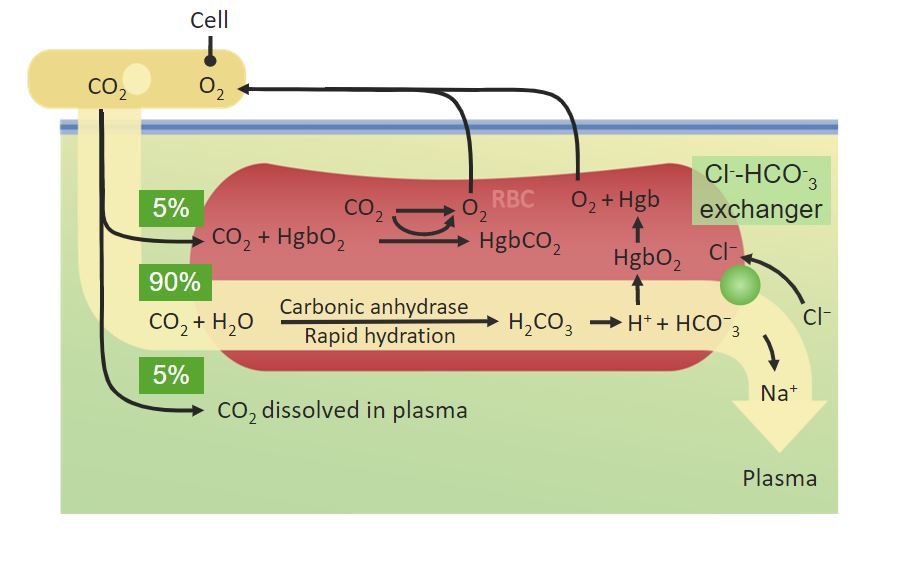Playlist
Show Playlist
Hide Playlist
Physiologic Basics – Respiration and Cardiovascular System
-
02 - Respiration and Cardiovascular System.pdf
-
Download Lecture Overview
00:06 Hello ladies and gentlemen. Welcome back to our ongoing discussion of Anesthesiology. In this lecture, we're going to talk about some of the effects that anesthetics have on basic body functions. We're going to emphasize the effect on the respiratory system and the cardiovascular system. And then briefly cover effects on the hemostatic system and the acid base balance. So, does general anesthesia have an impact upon respiratory function? Anesthetic vapours reduce the breathing center's response to changes in arterial carbon dioxide or partial pressure of carbon dioxide in the blood. Vapours increase the rate of breathing, but decrease tidal volume. And the overall effect is to reduce minute ventilation. This has the effect of allowing carbon dioxide to rise in the blood. 01:00 In extreme cases, very extreme cases, Oxygen level may also drop resulting in hypoxemia or low blood oxygen, and reduction in the general oxygen delivery to tissues. Opiates and opioids also have a major effect upon the respiratory system. They also reduce the brain's response to rising carbon dioxide in the blood. But the increase in tidal volume, but they increase the tidal volume dramatically and decrease respiratory rate, thus reducing minute ventilation. So they work exactly the opposite of how vapours work. The overall effect however is still to allow carbon dioxide to rise, which under normal circumstances would have a major stimulating effect upon the respiratory center. However, the presence of vapours or opiates interferes with that response from the respiratory center. So, carbon dioxide continues to rise and does not stimulate more breathing. So how do we take care of these changes?
About the Lecture
The lecture Physiologic Basics – Respiration and Cardiovascular System by Brian Warriner, MD, FRCPC is from the course Anesthesiology: Introduction.
Included Quiz Questions
Which of the following statements about anesthetic vapors is TRUE?
- Anesthetic vapors reduce the breathing center’s response to changes in PaCO2.
- Anesthetic vapors decrease the breathing rate.
- Anesthetic vapors increase the tidal volume.
- Anesthetic vapors lead to an overall increase in minute ventilation.
- Anesthetic vapors increase the brain’s response to rising carbon dioxide in the blood.
Customer reviews
5,0 of 5 stars
| 5 Stars |
|
2 |
| 4 Stars |
|
0 |
| 3 Stars |
|
0 |
| 2 Stars |
|
0 |
| 1 Star |
|
0 |
I liked how he explained opioids in terms of PaCO2.
This lecture was informative and engaging. The speaker did an excellent job of presenting the material in a clear and concise manner, making it easy to understand.




